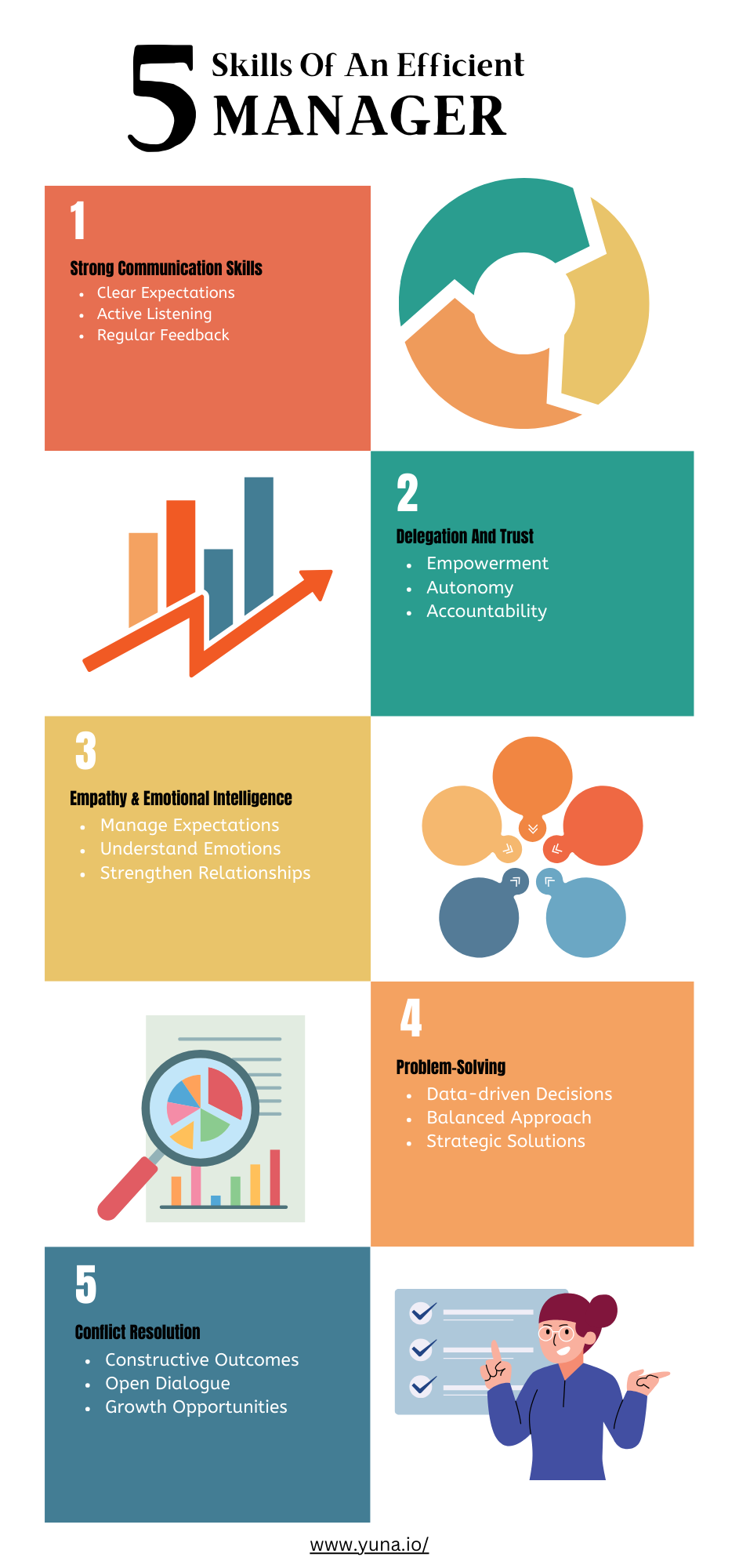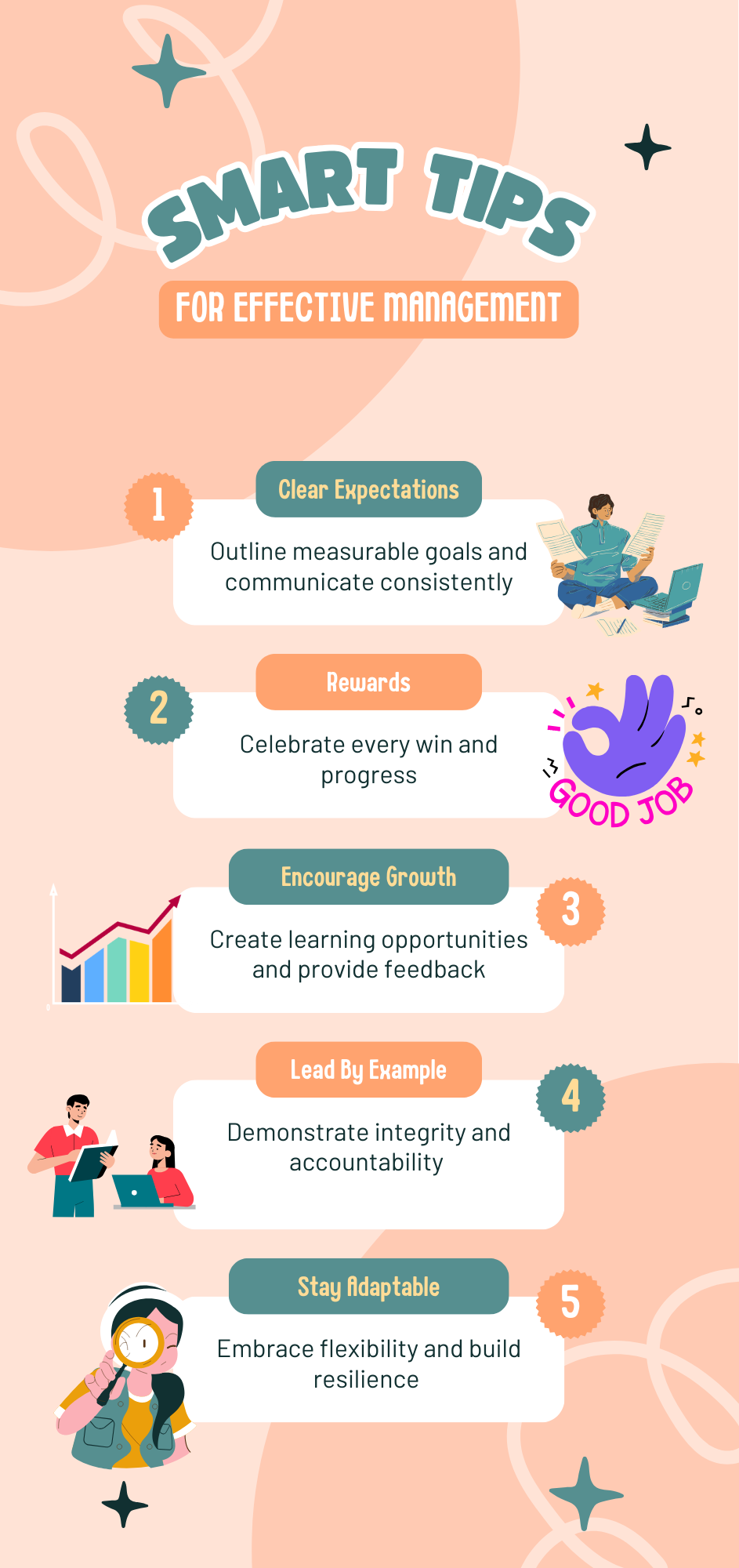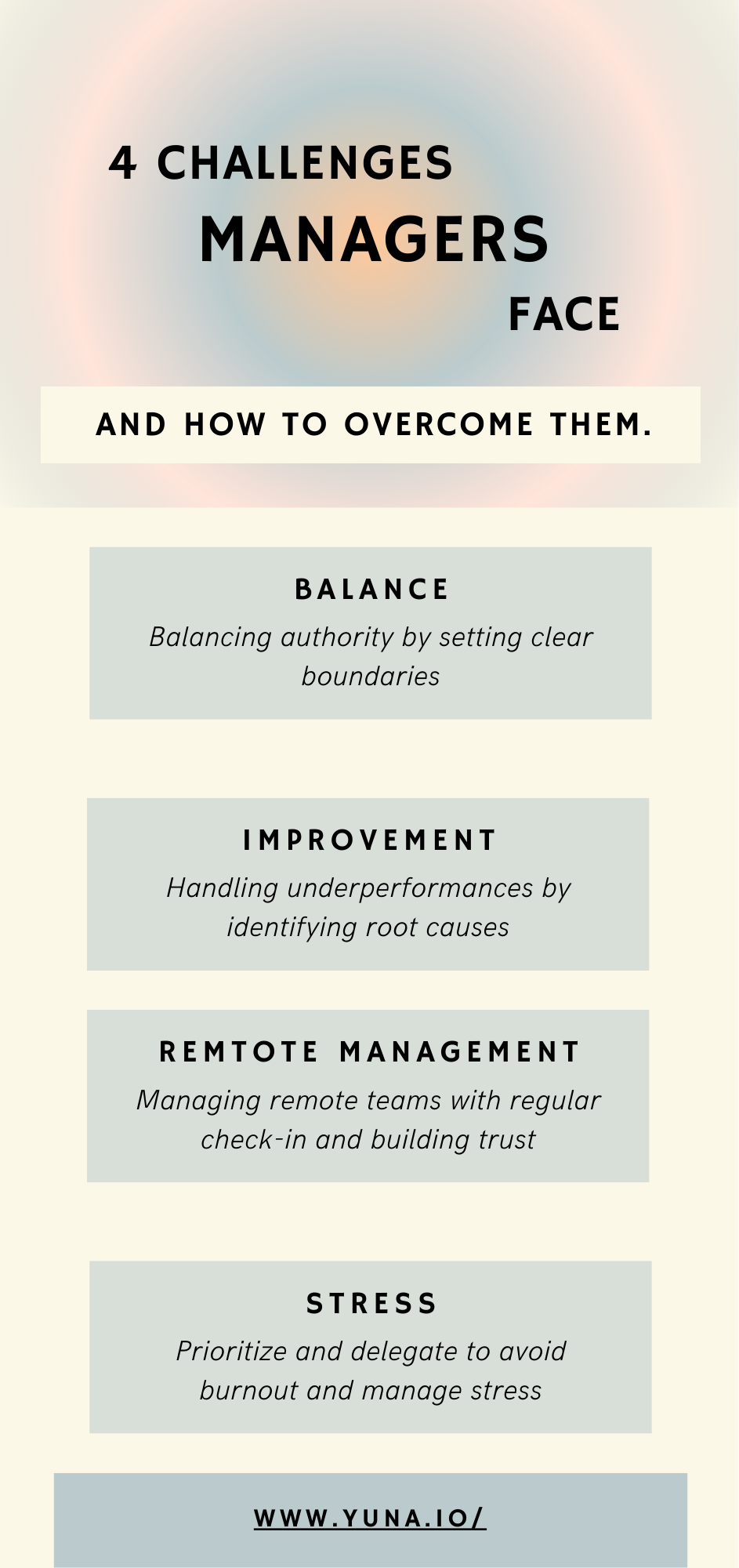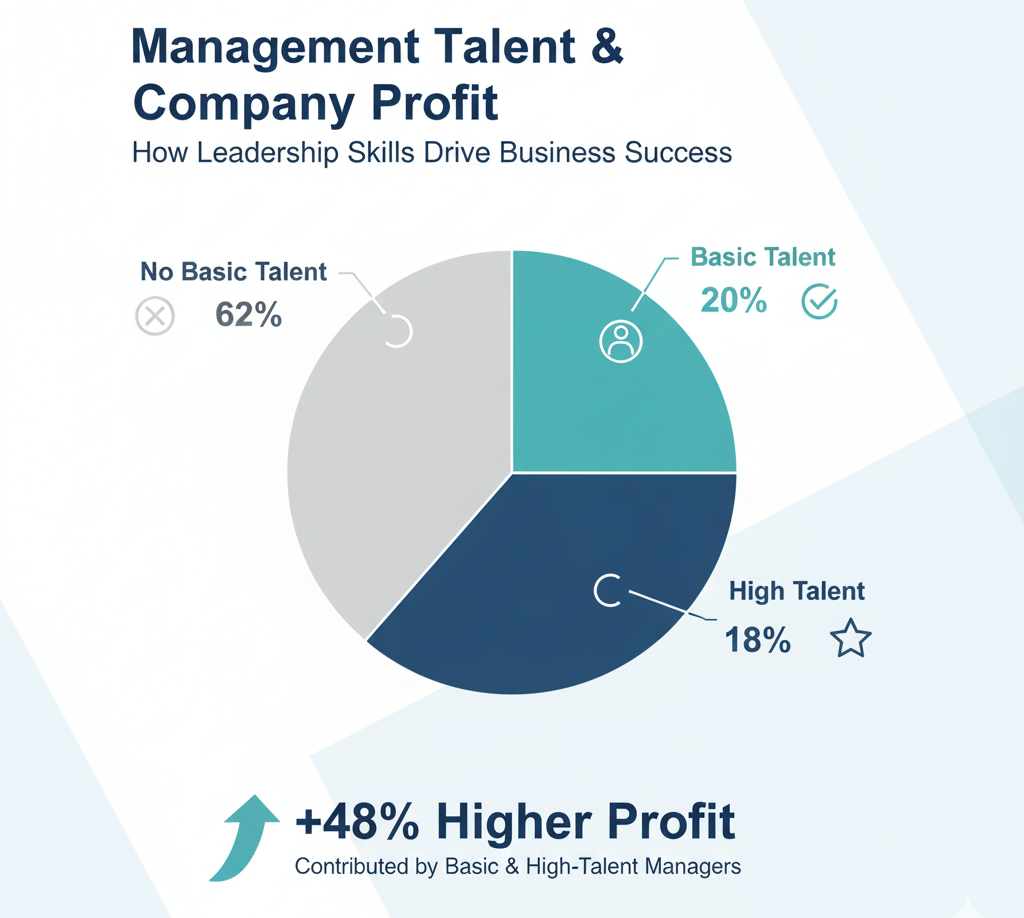Being a manager is not only about assigning tasks or tracking deadlines. It is about leading people and guiding teams, so individuals feel valued and supported. Many new managers often struggle with balancing authority and empathy, handling underperformance, or motivating diverse personalities.
Management is a skill that can be learned, developed, and refined over time. Research shows that effective managers positively influence employee engagement, performance, and overall workplace culture. Yet studies reveal a worrisome truth: only 35% of U.S. managers are fully engaged in their work. More than half (51%) are not engaged, and 14% are actively disengaged.
This guide explores how to be a good manager, covering qualities, essential skills, practical tips, and strategies for long-term growth. By the end, you will walk away with actionable steps you can begin applying immediately to become the kind of manager people respect, trust, and want to follow.

What Makes a Good Manager?
A manager’s role goes beyond supervision. At its core, management involves planning, organizing, leading, and supporting a team to achieve shared goals. Good managers act as bridges between organizational objectives and individual team contributions.
The difference between poor and good management is striking. Poor managers often micromanage, communicate poorly, and lack empathy, leading to disengaged employees and high turnover. It has been found in studies that every one in two employees left an organization due to a bad manager.
In contrast, good managers are approachable, transparent, and inspiring. They empower their teams to take ownership of their work and build trust by leading with fairness and integrity.
Qualities that define a good manager include:
- Communication: Clear, respectful, and open dialogue.
- Empathy: Understanding team members’ perspectives and emotions.
- Decision-Making: Balancing analysis with fairness and speed.
- Adaptability: Adjusting to challenges, change, and new opportunities.
These qualities build a foundation for effective leadership, creating teams that feel supported, motivated, and capable of doing their best work.

Essential Skills for Effective Managers
To understand how to be a good manager, it is important to master key skills that allow you to lead with confidence and clarity. These skills transform leadership from a title into a practice that inspires results.
Strong Communication Skills
Good managers communicate expectations clearly and encourage two-way conversations. Active listening ensures employees feel heard, while constructive feedback promotes growth. According to Forbes, managers who master communication foster better collaboration and fewer misunderstandings.
Emotional Intelligence & Empathy
Emotional intelligence (EQ) is the ability to understand and manage your own emotions while recognizing and supporting the emotions of others. High-EQ managers can sense when a team member feels overwhelmed, provide empathy, and offer guidance. This skill strengthens relationships and improves workplace morale.
Decision-Making & Problem-Solving
Managers often face tough decisions. The best leaders balance data-driven analysis with an understanding of team dynamics. Problem-solving requires breaking down issues, evaluating options, and choosing solutions that serve both short- and long-term needs.
Delegation & Trust
Micromanaging stifles creativity and reduces employee engagement. Effective managers delegate responsibilities, provide autonomy, and trust their team to deliver. Delegation empowers employees, builds accountability, and frees managers to focus on strategic priorities.
Conflict Resolution
Conflict is natural in any workplace. The role of a manager is not to avoid conflict but to guide it toward constructive outcomes. Addressing disagreements openly, listening to all sides, and encouraging respectful dialogue helps transform conflict into growth opportunities.

Tips on How to Be a Good Manager
Skills matter, but applying them consistently is what turns a manager into a leader. Below are practical tips every manager can use to strengthen their leadership.
Set Clear Expectations and Goals
Employees thrive when they understand what success looks like. Outline clear, measurable goals and communicate expectations consistently. Regular check-ins ensure alignment and help employees stay motivated.
Recognize and Reward Achievements
Acknowledgment builds morale. Celebrate both big wins and small progress. Recognition—whether through praise, awards, or simple appreciation—boosts engagement and strengthens loyalty.
Encourage Professional Growth and Mentorship
A good manager invests in their team’s development. Encourage learning opportunities, provide constructive feedback, and act as a mentor. Supporting growth builds stronger, more capable employees.
Lead by Example
Your behavior sets the tone for your team. Demonstrating integrity, accountability, and professionalism inspires others to mirror those qualities. Leading by example creates a culture of trust and respect.
Stay Adaptable in Changing Environments
Business environments shift constantly. Managers who remain flexible and open to change can guide teams more effectively through uncertainty. Adaptability shows resilience and builds confidence within the team.
A good manager must be a good leader. And a good leader may also need mental health support sometimes. Yuna provides mental health support to founders and leaders to help them tackle their day-to-day duties seamlessly.

How to Improve as a Manager Over Time
Lack of engagement from managers carries a massive cost. Research estimates that disengaged managers contribute to lost productivity worth up to US$398 billion every year.
Management is not a static skill. It evolves with practice and experience. The best managers see themselves as lifelong learners.
Seeking feedback is one of the most effective ways to grow. Ask employees and peers what is working well and what could be improved. Constructive input helps identify blind spots and new opportunities for growth.
Continuous learning through workshops, leadership books, podcasts, or professional coaching also strengthens management skills. For example, attending leadership seminars or joining peer groups exposes managers to diverse perspectives and fresh strategies.
Ultimately, the journey of improvement is ongoing. The more open you are to learning, the better leader you will become.

Challenges Managers Face and How to Overcome Them
Every manager encounters obstacles. Knowing what they are and how to address them makes it easier to succeed.
Balancing Authority and Approachability
Managers must enforce rules while remaining approachable. The balance comes from setting boundaries with clarity while being open to feedback and discussions.
Handling Underperformance
When employees underperform, good managers address it early. They identify root causes, whether skill gaps, motivation, or unclear expectations, and work with the employee to create a clear improvement plan.
Managing Remote Teams
Remote work brings challenges like lack of face-to-face interaction and communication barriers. Strong digital communication, regular check-ins, and building trust ensure remote teams stay connected and productive.
Time Management and Stress
Managers juggle multiple responsibilities. Prioritization, delegation, and personal stress management practices like mindfulness or exercise prevent burnout and improve efficiency.

Let Yuna Assist You Being a Good Manager
Not everyone is born a great manager, but the data shows there is strong potential to grow into the role. Studies reveal that nearly one in five people (18%) in management positions demonstrate a high level of talent for leading others. Another two in ten show basic managerial talent that can develop with the right coaching and support. Managers with strong or developing talent contribute about 48% higher profit compared to average managers.
And that’s where Yuna can help. Yuna is an AI-powered mental health and leadership coach designed to support both personal and professional growth. It offers guided conversations, self-reflection exercises, and evidence-based insights that can strengthen your ability to manage stress, build empathy, and improve communication with your team.
Whether you are a first-time manager or an experienced leader, Yuna provides on-demand guidance to help you stay balanced and lead with confidence. Yuna is here to support you on your journey to become a great manager, supporting you from day one.

FAQs
What are the top qualities of a good manager?
Good managers are empathetic, communicative, adaptable, and decisive. They inspire trust, delegate effectively, and lead by example. These qualities create motivated teams and a positive workplace culture.
How can I build trust with my team?
Build trust by being consistent, transparent, and supportive. Follow through on promises, respect confidentiality, and give employees autonomy. Trust grows when managers act with integrity.
How do I handle team conflicts effectively?
Address conflicts quickly and fairly. Listen to all perspectives, encourage respectful dialogue, and focus on solutions rather than blame. Conflicts managed well often strengthen team bonds.
What are ways to motivate employees?
Motivation grows through recognition, clear goals, opportunities for growth, and supportive leadership. Small gestures of appreciation and career development opportunities are powerful motivators.
Can leadership skills be learned?
Yes. Leadership is not only innate; it can be developed through practice, feedback, and continuous learning. Managers who invest in growth improve their effectiveness over time.










